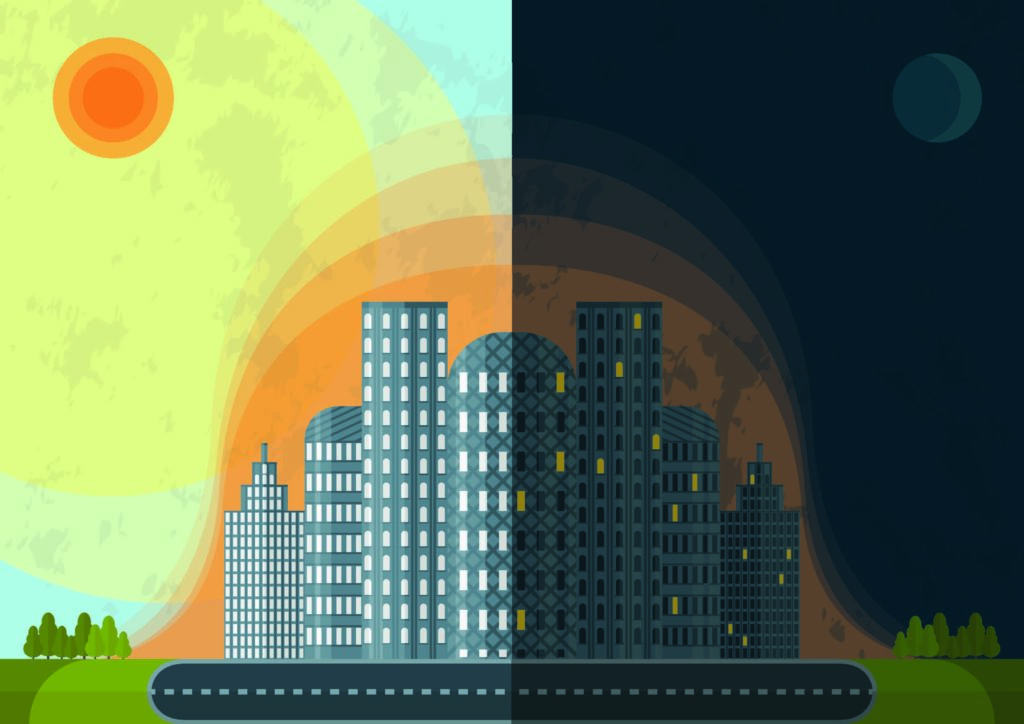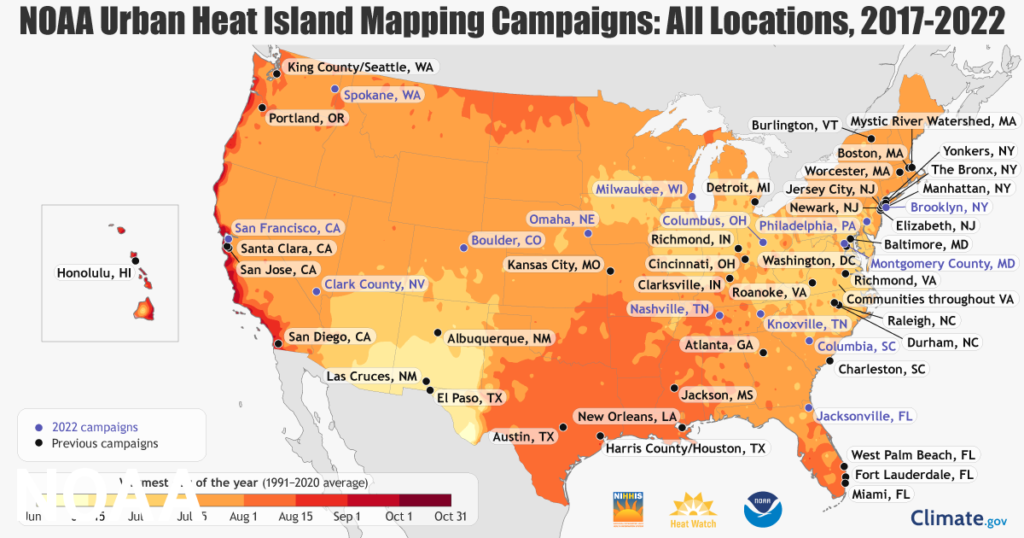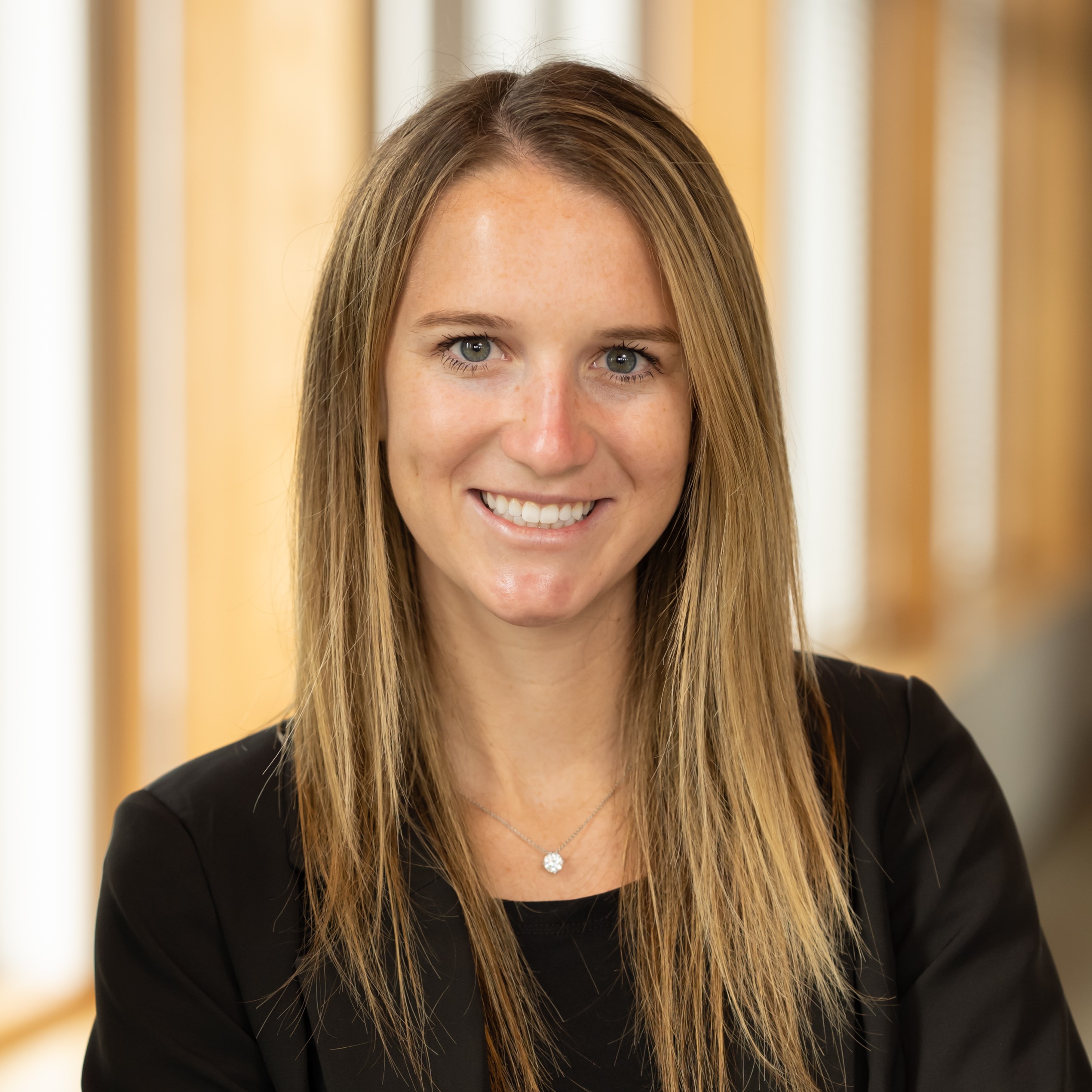During the summer of 2022, there were more than 7,000 record-breaking daily temperatures reported across the U.S., according to data from the National Oceanic and Atmospheric Administration (NOAA). Dangerously high temperatures in the U.S. impacted more than 40 million people, posing a major public health and safety risk. Extreme heat is the single-most deadly type of natural disaster in the U.S. According to the Centers for Disease Control and Prevention (CDC), deaths from extreme heat disproportionately affect Native American and Black communities, as well as those living in the urban core.
Now, more than ever is the time to spur policy action at the state and local levels to address, reduce, and adapt to extreme heat in our cities. With support from the Barr Foundation and ClimateWorks Foundation, New Buildings Institute (NBI) is kicking off a new project focused on developing policy solutions tailored for urban areas to address options for mitigation and adaptation of the built environment to deal with extreme heat.
Why are heat islands a public health and environmental problem?
Urban and metropolitan areas, where about 85% of the U.S. population currently lives, are especially susceptible to the effects of heat. This is due to cities’ dense concentrations of asphalt, concrete, and other surfaces that absorb solar heat during the day and radiate it back into the environment at night.
Human-made infrastructure such as buildings and roads absorb and re-emit the sun’s heat more than natural landscapes such as forests and water bodies. Urban areas where these structures are highly concentrated become “islands” of higher temperatures relative to outlying areas. These pockets of heat are referred to as “heat islands”.
Temperature differences within cities directly mirror the environmental injustice in building and city planning policies. Studies have shown that residents of low-income and historically red-lined neighborhoods experience higher temperatures and worse heat-health outcomes.
The National Oceanic and Atmospheric Administration has been leading the way for communities to better understand the growing health issues of urban heat islands through their Urban Heat Island (UHI) mapping campaign, which is also part of the Biden Administration’s Justice40 initiative. During the past six summers, more than 60 cities and counties across the U.S. have participated in the UHI mapping campaign. This initiative has helped raise awareness about the many impacts of extreme heat and the factors that may cause their uneven distribution throughout a community.

Using policy and code to create more resilient urban environments
Starting this month, NBI will conduct outreach and engage with jurisdictions impacted by extreme heat. The process of selecting jurisdictions is just getting started and we will begin discussion groups soon. We plan to partner with community-based organizations to help ensure that people who have been historically left out of policy development can be involved with developing solutions. This engagement will serve as the foundation of technical research that seeks to determine the best options for the code and policy implementation of urban heat work.
From these discussion group sessions, NBI will develop two options for policy adoption and language for local ordinances and code. The policy language will prioritize key areas of heat mitigation such as cool surfaces and adaptation strategies like thermal envelope optimization, air conditioning, and cooling centers. The code language will be made compatible with the current structure of the International Code Council (ICC)’s suite of mode codes.
The final code and policy language will be made publicly available in Spring 2024. If you are interested in learning more about the project or have any questions, please email Webly Bowles, NBI’s Associate Director of Codes and Policy.
by Bryce Seymour, Project Manager
Bio
Did you enjoy this content? Consider supporting NBI’s work with a donation today.
